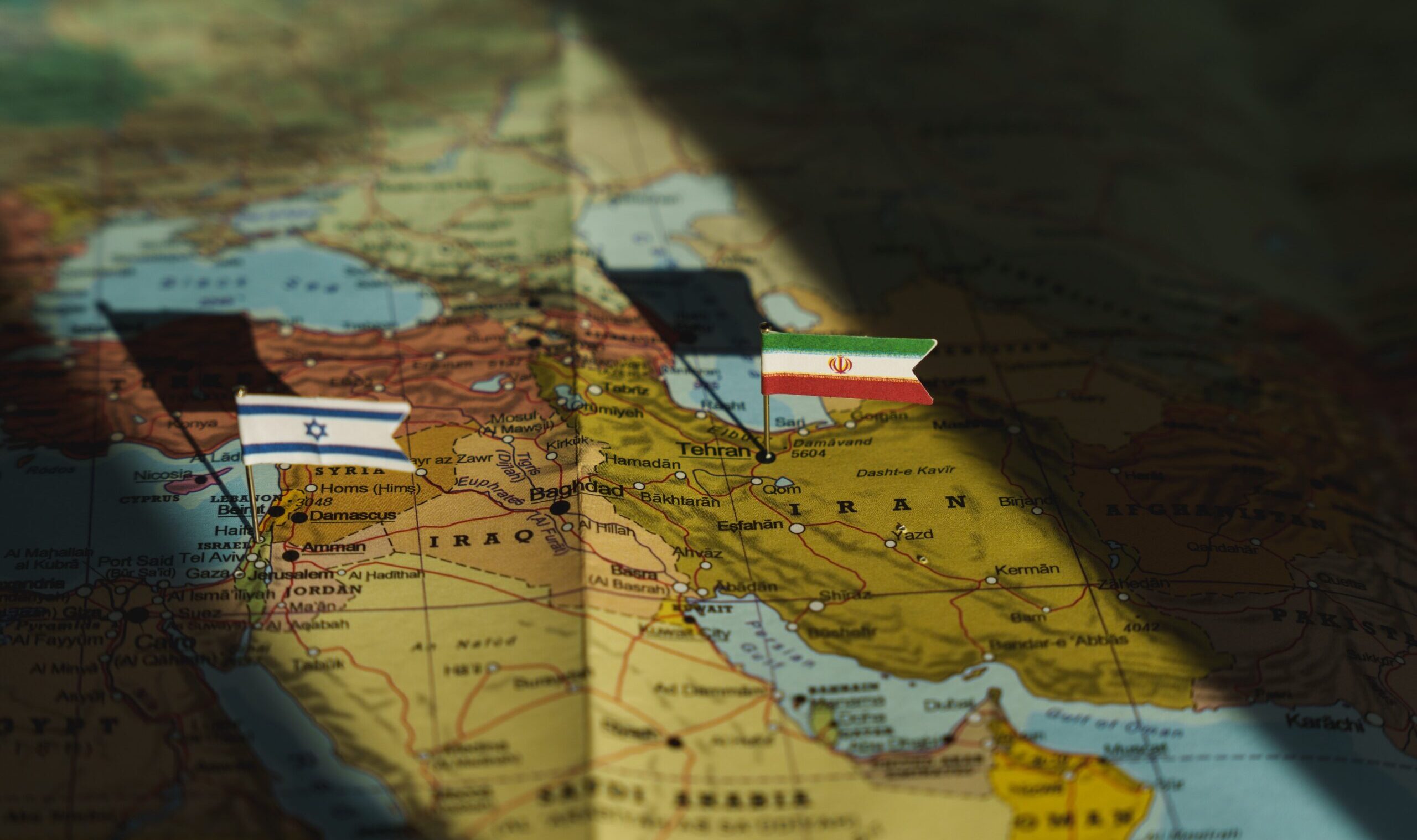Iran: America’s Next War Of Choice
The U.S. is at risk of being buffaloed into a bloody war of regional realignment in the wake of Syria’s collapse. The post Iran: America’s Next War Of Choice appeared first on The American Conservative.

Iran: America’s Next War Of Choice
The U.S. is at risk of being buffaloed into a bloody war of regional realignment in the wake of Syria’s collapse.

Peace is not at hand in the Middle East, and Israel’s Prime Minister Netanyahu remains determined to expand the war. Syria’s de facto partition into Israeli and Turkish territories is the prelude to wider war with Iran. As the Times of Israel reported last week, the Israeli Air Force (IAF) has “continued to increase its readiness and preparations” for “potential strikes in Iran.”
Netanyahu’s top priority is the destruction of Iran before Russia wraps up its victory in Ukraine and Syria becomes a new battleground for Turks and Israelis. It’s not simply the end of Washington’s “rules-based international order.” It’s the onset of chaos. Israeli forces and Turkish auxiliaries (i.e. the Islamist terrorists who sacked Syria) are already staring at each other across a demarcation line that runs east–west just south of Damascus. Netanyahu harbors no illusions about the conflict between Ankara’s long-term strategic aims in the region and Jerusalem’s determination to claim the Syrian spoils of war.
In addition to serious financial trouble and societal discontent on the home front, President-elect Donald Trump now confronts the dangerous distraction of wars he did not start, wars that will bring his administration and his country no strategic benefit. America’s underwriting of Netanyahu’s expanding war in the Middle East will endanger U.S. national security and guarantee that Washington, its armed forces, and the U.S. economy will be hostage to whatever strategic direction Netanyahu decides to take.
Starting the war sooner, rather than later, is critical for Netanyahu. War with Iran presents Trump with a strategic fait accompli. In case Trump decides to distance the United States from another bloodbath in the Middle East, Israel’s ongoing conflict with Iran and Turkey’s potential confrontation with Israel will make disengagement impossible.
American policy planners need to understand the larger context in which this is all unfolding—and why a war on Iran will ultimately bring us and our alleged Israeli friends to grief. The principal aim of U.S. foreign policy planners ought to be the adaptation of the American economy and military establishment to the multipolar world and the development of new markets, not new enemies. Washington’s refusal to acknowledge the fundamental shifts in power and wealth lie at the heart of much of the Biden administration’s foreign policy failure.
A successful management of change would avoid a conflict with Iran; it would peacefully reconcile competing claims to regional hegemony, as the Chinese recently did with their brokering of the historic rapprochement between the Kingdom of Saudi Arabia and the Islamic Republic of Iran. It would revitalize such multilateral organizations as the UN Security Council and the Organization for Security and Co-operation in Europe. These actions would cultivate the emergence of new constellations of power along the lines of Metternich and Castlereagh’s 1815 Concert of Europe. Just as no question of strategic security in Europe can be solved without Russian participation, Washington cannot create stability in the Middle East by unconditionally backing Israel’s territorial ambitions.
An American failure to manage its own transition to multipolarity will create more chaos and ignite a major war in the Middle East, not to mention a full blown war with Russia, and, eventually, China. An outlook that prioritizes avoiding conflict, not starting new conflicts, must replace nearly three decades of feckless leadership in foreign affairs. New thinking in defense and foreign policy should rank diplomacy and peaceful cooperation first over the use of military power.
Bonaparte quipped that in war, truth is the first casualty. Nothing has changed since then. Washington is a veritable fountainhead of lies feeding an unending stream of false narratives regarding the true character of the jihadist hordes raging across Syria. For our purposes, however, it is important to note the alignment of powers behind the Islamist factions now pillaging and terrorizing Syria.
Washington seems blithely oblivious to Syria’s destruction and the emergence of joint Israeli-Turkish hegemony across the Near East. The disintegration of Syria does, however, open up a short window of opportunity for Tel Aviv to attack Iran. As the Times of Israel report noted, while previously the “IAF would not fly directly over Damascus when carrying out strikes on Iran-linked targets in the capital, it now can.”
Netanyahu believes he has the wind at his back: Emboldened by the collapse of the Assad regime, he will turn his attention to Lebanon, southern Syria, and the West Bank. One predictable consequence of an attack on Iran will be a solidifying of the Chinese-brokered Iran-Saudi rapprochement—and a hardening of the blocs in the Greater Middle East, which will see Iran, backed by Russia, China, Saudi Arabia, set against a temporary Israel-Turkish bloc backed by Washington and its European vassals.
Iran is not Iraq: At 90 million people, it is double Iraq’s population, has a more developed economy, and has more powerful allies than Saddam Hussein ever did. Contrary to neoconservative expectations, there are no cake-walks in the greater Middle East.
The only certainty amid the chaos is that, thanks to the connivance of Biden, Netanyahu, and Erdogan, a wider war in the greater Middle East is only just beginning. It is one we will come to regret.
The post Iran: America’s Next War Of Choice appeared first on The American Conservative.
What's Your Reaction?















